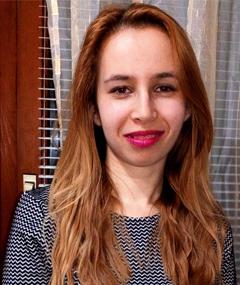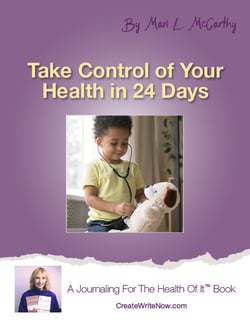The World Health Organization defines burnout as an “occupational phenomenon” caused by prolonged stress — it manifests as physical, emotional, and mental exhaustion. This stress may occur because you feel overwhelmed, emotionally and physically drained, as well as unable to cope with your work demands for too long.
If you’re burning out, you may experience:
- headaches
- dizziness
- chronic fatigue
- stomachaches
- a loss of appetite
- apathy
- anxiety
- lethargy
- outbursts of emotions
Now, these are just some of the symptoms that you may feel if suffering from burnout. Moreover, there is still no sufficient data to predict the long-term effects of this phenomenon — however, depression is one of the likely outcomes of burnout in cases it is left unaddressed. So, it’s vital to consult a medical professional and combat it as soon as you realize what is going on.
Here’s what I learned from my own personal brush with burnout, as well as some research-based tips I’ve tried to battle it.
The arrangement that caused me to burn out
During 2016. I was enrolled in a Master’s program at the department of English Language and Literature in my home country, Serbia. We had classes during the weekend and a Master’s paper to write by the beginning of the school year in 2017.
Now, despite having regular classes, tests, exams, and a paper to write, I thought that I could use the weekdays to do some freelance writing.
So, I started reaching out to blogs and websites to find some work.
After some time, I arranged a regular work-from-home writing job that usually required me to write 2-3 1000-word articles per day for various clients.
The topics ranged from cats to technology and I was never really sure what I was going to be assigned to write that day. Which was fun, but a bit scary.
I’d get up in the morning, look over my assignments, and start writing. I usually had about 5 hours to write, proofread, and submit the article from the moment I accepted it.
On top of that, after I had already taken all of my classes, I started working on my Master’s thesis. The paper required a lot of research, writing, and constant trips to various libraries, which were located outside of my hometown — so I had to commute a lot.
How burnout affected me
After some time, I got assigned with more freelance clients and more topics.
As a result of all that, I soon found that I was sometimes spending as much as 14 hours per day just on writing and editing.
I also had to do a lot of emailing, both with my clients and the professor who was mentoring my Master’s paper. So, there were days when I would spend as much as 16 hours glued to my laptop.
I was simply unaware of what burnout really meant to recognize the symptoms.
I was sleep-deprived, easily irritable, constantly tired, and always hungry. I’d experience persistent headaches, and I was also quite cynical about my progress.
At the start of each morning, all I could see was an endless string of writing and editing, right up until the time I’d go to sleep. And I saw no end to it.
How I realized I had a problem
During the winter holidays, I was to attend a family dinner — this was after a little more than a month of writing at least 10 hours almost every day.
While there, I had a talk with a relative who is a doctor, who told me that if I were to keep going at such a pace, I would experience serious burnout-induced issues.
That was when I first heard about burnout. It was also the first time I realized that I had to make some choices:
Either I’d finish my Master’s thesis on time and take care of my health, or I’d get completely swallowed up by my ever-growing freelance workload.
What helped me deal with burnout
After this talk, I did some research on burnout online. And, I found a research that centered around the best strategies to avoid burnout.
I thought about the main points made in the said research and found that I was missing the key elements that were supposed to help me avoid burnout:
- I wasn’t leading a stable social life with family and friends, like a share of 60% recommended.
- I wasn’t exercising, like a share of 58% recommended.
- I didn’t have a hobby, like a share of 56% recommended.
- I didn’t take days off, like a share of 47% recommended.
- I wasn’t trying to lower work pressure, like a share 42% recommended.
So, I decided to start implementing these strategies in my daily routine.
Lowering work pressure by cutting back on non-priority work
The first thing I wanted to focus on was lowering work pressure. So, I decided to change my daily routine, reshuffle my weekly schedule, and significantly cut back on the work I took on as a freelance writer.
I’d only accept 1 article per day and I focused most of my attention on finishing my Master’s thesis and studying for exams.
My parents were supportive of my decision. After all, obtaining my Master's degree was regarded as the bigger priority at the time than finding steady work.
So, when looking to cut back on non-priority work, what I did, and what you can do too, is make a list of the tasks performed on a daily basis. Then, you can ask yourself:
- “What can I eliminate from my daily schedule?”
- “Where can I cut back on my workload?”
- “What are the priorities I need to focus on the most?”
Now, you may feel like everything is a priority — but, trust me, it’s not.
By proxy, your priority tasks are the tasks that are both urgent and important.
Sometimes, you’ll decide what is urgent and important. Other times, it will be decided for you.
Now, despite the 5-hour time limit I had to write each article, an article would only become urgent and important once I’d decide to take it on — which was my choice, as I did not need to accept such a large number of articles per week in the first place.
Sometimes, you’ll have clear deadlines that point that a task is urgent and important — I had an official deadline to finish my Master’s thesis, so that was my bigger priority, one that I knew I needed to focus on more. So, I cut back on everything else.
Decreasing stress by having a healthy daily routine
When writing for hours on end, I’d often forget to eat or stay hydrated. I’d skip breakfast, have a late lunch and dinner — and I was often hungry throughout the day.
So, once I’ve decided to change my daily routine, I also made it my goal to make time for three meals a day, and at least one snack between meals.
I’d make myself a light breakfast as soon as I get up in the morning. I’d usually reserve mornings for writing the said 1 article for work. And, I’d usually work on my Master’s thesis later in the day.
As soon as I felt hungry (which turned out to be much less frequently now that I was having regular breakfast), I’d take a prolonged lunch break. Before bed, I’d also make myself a healthy dinner.
I also made it a habit to place a large pitcher of water in my home office. This way, I had all the means to stay hydrated at hand, so I actually did — as opposed to the times when I’d forget or was simply too lazy to get a glass of water because I’d have to go downstairs to do it.
Now, perhaps you’d expect me to also say that I’d usually go to bed early and get up at the crack of dawn because that’s a popular productivity practice.
But, I liked working in the evening, as I’d usually get a surge of energy at that time. So, I’d usually go to bed at a later time, and get up at a later time.
And that’s one of the more important things I learned from this experience — listening to expert advice is great, but you also need to tweak every piece of advice to your own ideal workflow.
Making time for exercise and a hobby
Logic may imply that there is no time for exercise and a hobby in a busy schedule. But, they really are what can help you bear a busy schedule in the first place.
So, in addition to eating well, sleeping enough, and staying hydrated, I made it a habit to always set official time blocks for when I’d do a round of light-weight exercises during the day.
Sometimes I’d exercise in the morning, before breakfast. Sometimes I’d exercise in the afternoon, before lunch.
When it comes to a hobby, I decided to refresh my knowledge with the piano — I used to take piano lessons when I was a teenager, so I decided to amuse myself during my downtime by learning to play some of my favorite songs.
This turned out to be a great relaxation technique for me. Firstly, playing the piano would make me forget about any work-related dilemmas I might have had at the time. And, secondly, playing the piano would help me stop stressing about my paper when I wasn’t working on it.
Having some fun with friends and family
Apart from working towards my degree and saving enough time for three meals a day, enough sleep, some exercise, I would also reserve some time during the week for trips and even some fun.
I had friends who were in the same position as me, so we’d usually organize weekly get-together when we went to the movies. We’d pick fun sci-fi movies or adventure flicks, and enjoy 2 hours of popcorn-filled entertainment. Sometimes, to our unexpected delight, the movies we’d go to see would turn out atrociously bad so we’d giggle throughout them — and, sometimes, even for hours after we’d already left the cinema.
In addition to spending time with friends, I’d also spend more quality time with my family. We’d always use Sunday mornings and afternoons to go on a field trip, and we’d occasionally organize game nights during the week.
These weekly outings turned out to be a great way to relax and re-energize. They also served as a great motivator for me to push forward with my work and college tasks, because I knew I’d be enjoying fun get-togethers soon enough after each couple of days of hard work.
The bottom line
In the end, the tactics that helped me combat burnout included:
- Focusing on my priority tasks, and eliminating or minimizing anything that wasn’t urgent or immediately important
- Finding enough time for three meals a day, snacks, and enough sleep
- Making the effort to exercise and focus on a hobby
- Making the effort to stay hydrated
- Finding time to relax, rest, as well as spend quality fun time with friends and family
Now, judging by my suggestions, it might seem that I was spending more time on self-care than on my work.
But, I was actually still working on my articles and my Master’s thesis for about 8 hours per weekday, and at least 4 hours on weekends in total — which was still more than the average 40-hour workweek.
And that’s the thing — taking care of your health and saving time for leisure activities doesn’t take much time or effort. But, it means a lot for your health, both physical and mental.
Moreover, it doesn’t take away from the quality of your work — in fact, being well-rested and relaxed while working will always bring you better results than powering through your work and ignoring your hunger and thirst.
In the end, I managed to ace my Master’s paper with flying colors, and I decided to move on from the said freelance arrangement. Today, I write full-time for a blog that centers around time management and productivity — and, I even wrote a guide on burnout for it.
You can use my suggestions as guidelines to help you deal with burnout — however, if you fear you may be experiencing burnout, it’s also vital that you consult with a medical professional about it. Good luck!

Author bio: Marija Kojic is a productivity expert specialized in time management techniques. She works at Clockify, where she enjoys helping people discover meaningful and effective ways to work smarter.
NOW ON SALE!



Leave Comment